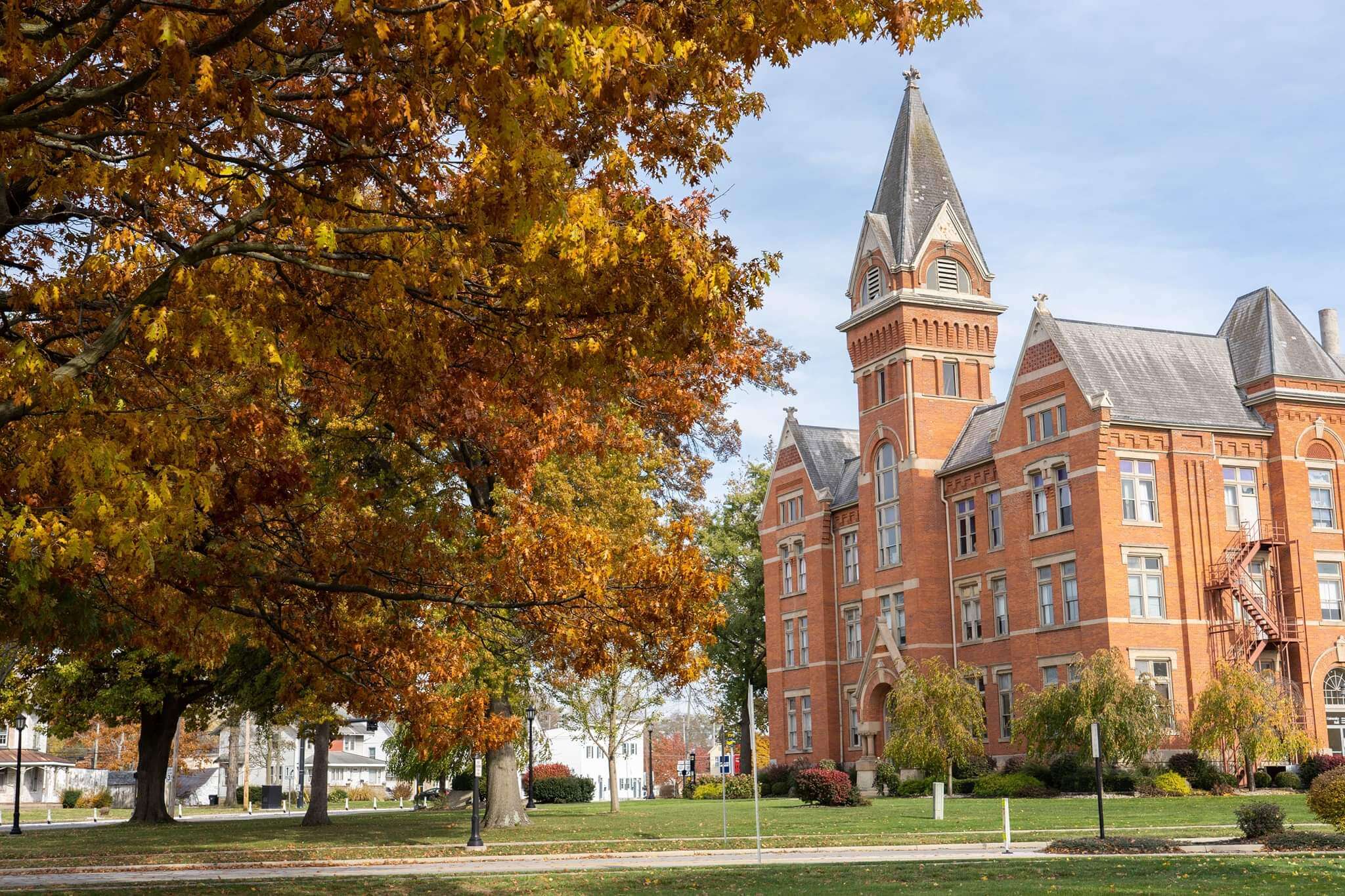Heidelberg University: Germany’s Oldest and Most Prestigious Institution of Higher Learning
A Storied Legacy Rooted in European History
Heidelberg University, officially known as Ruprecht-Karls-Universität Heidelberg, stands as a symbol of intellectual tradition and academic excellence in Europe. Founded in 1386, it is Germany’s oldest university and one of the world’s oldest surviving institutions of higher education. For over six centuries, it has served as a cradle for scientific discovery, humanistic thought, and social change. Throughout its long history, the university has played a key role in shaping the cultural, scientific, and political landscapes of Europe. Scholars from Heidelberg have influenced disciplines ranging from theology and philosophy to medicine and physics.
if you want change your life so click here
The university’s founding came during the period of the Holy Roman Empire, a time when the pursuit of knowledge was closely tied to religious and political authority. Yet Heidelberg quickly evolved into a liberal space that embraced Reformation ideas, Enlightenment values, and later, modern research paradigms. Its historical resilience is evident in how it navigated wars, political upheavals, and social transformations—emerging stronger and more relevant with each era.
Today, Heidelberg University is globally recognized as a leading research institution. It boasts a remarkable alumni list that includes Nobel laureates, philosophers, heads of state, and influential scientists. While rooted in tradition, the university continues to look forward—constantly innovating and adapting to meet the demands of a globalized academic world.
However, what sets Heidelberg apart is how swiftly and progressively it began to evolve beyond its original ecclesiastical roots. By the 16th century, the university had already become a cradle for Reformation thought. It was one of the first academic institutions to openly engage with the ideas of Martin Luther and other Protestant reformers, becoming a vibrant space for theological debate and religious dissent. This shift placed Heidelberg at the forefront of a transformative period in European history, where the authority of the Church was increasingly questioned, and intellectual freedom began to flourish.

As centuries passed, the university continued to adapt to the changing tides of political and philosophical movements. During the Age of Enlightenment, Heidelberg embraced secular humanism and scientific rationalism, becoming a haven for thinkers, poets, and early scientists who sought truth through reason and empirical inquiry. Even during times of turmoil—such as the Napoleonic Wars, the unification of Germany, and the devastations of two World Wars—Heidelberg University endured. It reemerged time and again, reinventing itself in line with modern research paradigms and democratic ideals.
This legacy of resilience and reinvention is what makes Heidelberg unique. Its ability to navigate upheaval while staying committed to academic freedom and innovation has cemented its status as not just a historical institution, but a continually evolving center of knowledge with global relevance.
A Diverse and Dynamic Academic Portfolio

Heidelberg University offers an extensive range of academic programs across its twelve faculties. These faculties span the arts and humanities, social sciences, natural sciences, medicine, theology, and law. What distinguishes Heidelberg’s academic structure is its commitment to interdisciplinary learning. Students are encouraged to explore across faculties, often combining courses from different fields to create a broader, richer educational experience.
The university offers over 160 different degree programs at the undergraduate, graduate, and doctoral levels. Popular areas of study include medicine, biology, physics, psychology, political science, philosophy, law, and international relations. Many programs are taught in German, especially at the undergraduate level, but there is a growing number of master’s and doctoral programs offered in English to attract international students.
Heidelberg is especially renowned for its contributions to the life sciences and medicine. The Heidelberg University Hospital is one of the largest and most advanced medical centers in Europe, often at the forefront of research into cancer, neuroscience, and genetics. Meanwhile, the humanities faculties remain strongholds of intellectual inquiry, offering globally respected programs in philosophy, history, theology, and cultural studies.
The academic calendar typically follows a two-semester system: winter and summer. Courses are lecture-based but often include seminars, fieldwork, and research projects. The university’s high academic standards, rigorous coursework, and international orientation make it one of the most sought-after institutions in Europe.
World-Class Research and Scientific Excellence

Research is at the core of Heidelberg University’s mission. As a member of the German Excellence Strategy, the university is recognized for its outstanding research output and leadership in fostering academic innovation. The institution supports cutting-edge work in multiple disciplines, often conducted through collaborative research centers, graduate schools, and global partnerships.
One of Heidelberg’s key strengths lies in the life sciences. The university is closely affiliated with prestigious institutions such as the German Cancer Research Center (DKFZ), the European Molecular Biology Laboratory (EMBL), and the Max Planck Institute for Medical Research. These collaborations enable groundbreaking studies in molecular biology, cancer treatment, biotechnology, and regenerative medicine.
Heidelberg also excels in the natural sciences, especially in theoretical physics and environmental research. In the social sciences and humanities, the university promotes interdisciplinary research that connects historical insight with contemporary issues such as migration, ethics, and international relations.
Doctoral students at Heidelberg benefit from structured graduate schools and research training groups that provide mentorship, funding, and career development support. These programs attract top talent from around the world, creating a vibrant, international research community.
In recent years, the university has focused heavily on promoting sustainability, digital transformation, and open science. Through initiatives like the Heidelberg Center for the Environment and the Field of Focus programs, researchers engage with some of the most pressing challenges of our time—including climate change, digital ethics, and global health.
The Historic and Inspiring Campus Environment
.jpg)
Located in the picturesque city of Heidelberg in southwestern Germany, the university campus is as captivating as its academic reputation. Nestled along the Neckar River and surrounded by forested hills and baroque architecture, Heidelberg is a city that seems to exist outside of time. It blends medieval charm with modern innovation, offering students a truly unique learning atmosphere.
The university operates on two main campus areas. The historic Old Town (Altstadt) is home to many of the humanities and social science faculties, housed in centuries-old buildings that reflect the university’s long heritage. Walking through its cobblestone streets, you’ll find libraries, seminar rooms, and faculty offices set against the backdrop of the Heidelberg Castle and the famous Philosopher’s Walk.
The second campus, known as the Neuenheimer Feld, is a sprawling, state-of-the-art science and medical complex located across the river. It houses the faculties of medicine, biology, chemistry, physics, and engineering, along with the university hospital and numerous research institutes. This campus is where scientific innovation meets modern architecture and cutting-edge technology.
Despite its prestigious status, the university maintains a warm and welcoming atmosphere. Students have access to modern libraries, digital learning tools, high-tech laboratories, and green spaces for relaxation. The campus encourages a sense of community and academic curiosity, where traditional values meet forward-thinking perspectives.
Student Life and Campus Culture

Studying at Heidelberg University is not just about academics—it’s also about experiencing a rich and dynamic student life. With over 30,000 students, including more than 5,000 international students from over 130 countries, the university offers a vibrant multicultural environment. This diversity contributes to a welcoming and stimulating campus culture that celebrates global perspectives.
Student organizations play a big role in university life. From theater groups and choirs to political debates, sustainability clubs, and tech startups, there’s something for everyone. The university supports over 100 student associations, each providing a space for creativity, leadership, and personal growth.
The Heidelberg Student Union and International Relations Office organize regular events such as language tandem sessions, intercultural workshops, film nights, and excursions across Germany. These activities help students integrate into the university community and build lasting friendships.
Accommodation is typically found through student housing or private rentals. While dormitories are competitive, the university provides assistance with housing searches and budgeting. The cost of living in Heidelberg is moderate by German standards, especially when compared to cities like Munich or Frankfurt.
Public transport is reliable and student-friendly, with most students cycling around the city or using the semester ticket to travel freely across the region. Heidelberg is also known for its safety, clean environment, and overall quality of life, making it a popular choice for students seeking both academic rigor and personal well-being.
Global Connections and International Appeal

Heidelberg University is firmly positioned as a global institution. It maintains strong academic partnerships with over 450 universities and research centers across the world, including prestigious institutions in the U.S., Asia, Africa, and Latin America. These partnerships facilitate student exchanges, dual-degree programs, and joint research initiatives.
Each year, the university welcomes thousands of international students and scholars through programs such as Erasmus+, DAAD scholarships, and faculty-led collaborations. English-taught programs, especially at the master’s and PhD levels, attract students from a broad range of academic backgrounds.
To support its global community, Heidelberg offers extensive services tailored to international students. The International Welcome Centre provides assistance with visas, health insurance, enrollment, and orientation. Language support is also available, with German language courses offered at various levels to help students integrate more smoothly.
The university also operates multiple overseas centers—such as the Heidelberg Center Latin America in Chile and the Heidelberg Center South Asia in India—which serve as hubs for academic exchange and research collaboration. These centers further Heidelberg’s role in shaping global dialogue and addressing international challenges.
Admissions Process and Financial Information

Admission to Heidelberg University depends on the program of interest, the level of study, and the applicant’s academic background. Undergraduate applicants typically need a high school diploma equivalent to the German Abitur, along with proof of German language proficiency for most bachelor’s programs.
Graduate programs often have more flexible language requirements, especially those taught in English. Applicants to master’s and doctoral programs must hold a recognized bachelor’s or master’s degree in a related field, and many programs require letters of recommendation, academic transcripts, a statement of purpose, and a CV.
For international applicants, the application process is usually conducted through the university’s online portal or via uni-assist, depending on the course and faculty. Admission deadlines vary, so checking specific program pages is crucial.
One of the biggest advantages of studying in Germany is the cost. Heidelberg University does not charge tuition fees for most programs, including for international students. However, all students must pay a modest semester fee (around €150–€170), which covers administrative costs and public transportation.
Living expenses in Heidelberg average between €850 and €1,200 per month, covering housing, food, insurance, and personal needs. Several scholarship opportunities are available through the DAAD, foundations, and the university itself, making it possible for students from all economic backgrounds to study in one of Europe’s top institutions.
FAQs: Common Questions About Heidelberg University
Is Heidelberg University free for international students?
Yes, most degree programs at Heidelberg University do not charge tuition, even for non-EU students. However, all students pay a small semester fee for services and public transportation.
Do I need to speak German to study at Heidelberg?
It depends on the program. Many undergraduate programs require German proficiency, while several master’s and PhD programs are offered in English. Language support is available for non-German speakers.
Is Heidelberg a safe city for students?
Yes, Heidelberg is consistently ranked as one of the safest cities in Germany. Its small size, friendly community, and excellent public services make it an ideal environment for students.
Can I work while studying at Heidelberg?
Yes. International students can work part-time during the semester and full-time during breaks. Germany allows up to 120 full or 240 half working days per year for non-EU students.
How competitive is admission?
Admission to Heidelberg is competitive, especially for popular programs like medicine or psychology. However, strong academic records, language skills, and clear motivation improve your chances significantly.
What kind of student services are available?
The university offers academic advising, counseling, career services, writing centers, language courses, and integration programs for international students, all designed to support success at every stage.
Conclusion: Why Heidelberg University Is a Destination of Choice
Heidelberg University stands at the crossroads of tradition and innovation, offering students a world-class education in one of Europe’s most historic and beautiful settings. Its academic rigor, research excellence, and global partnerships provide a powerful platform for intellectual growth and career success. With its welcoming atmosphere, multilingual programs, and commitment to internationalization, the university continues to attract some of the brightest minds from around the world.
Whether you’re aiming to explore the mysteries of the universe, unlock the secrets of the human mind, or help shape public policy and global health, Heidelberg offers the resources, mentorship, and inspiration to help you succeed. It’s not just a university—it’s a legacy, a community, and a launching pad for the next generation of global thinkers and leaders.